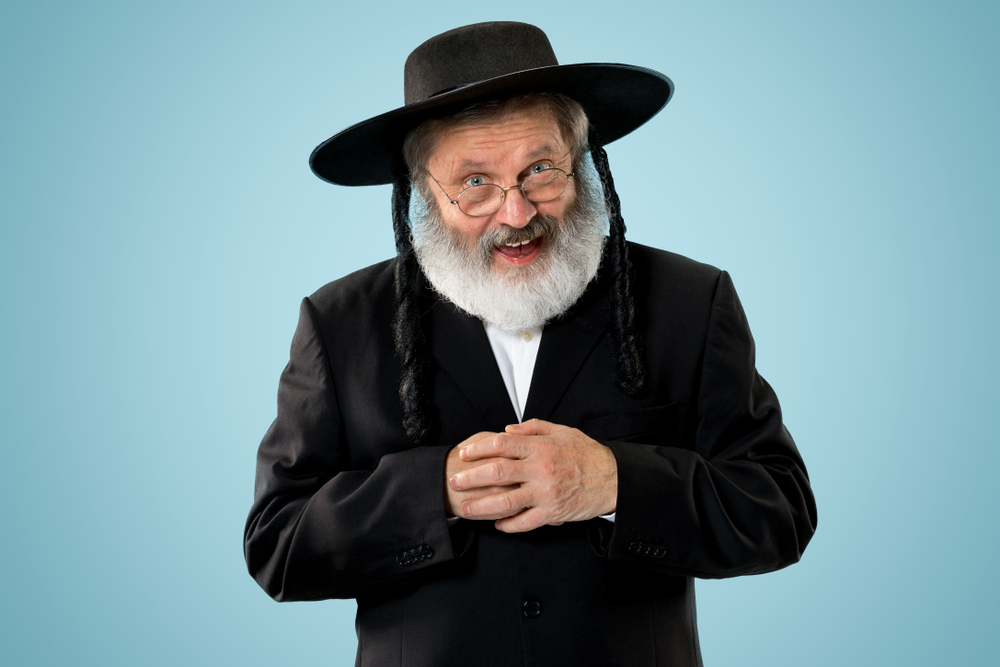Without a doubt, the topic of adoption can evoke sensitive, emotional responses in many people, and to make matters even more complicated, there are a lot of misconceptions lingering about the topic. And for those with a Jewish identity, adoption and the issues surrounding it may be even more confusing at times.
Why? Since many different opinions circulate among people with Jewish ancestry, it can take a lot of work to get accurate and reassuring information. As such, Dr. Andrew Krinsky and his team will aim to provide basic information regarding Jewish adoption and interfaith families to dispel some of the most common myths that often shroud this complex topic in even more mystery.
The Process of Jewish Adoption
When those with Jewish ancestry consider adoption, it’s crucial to understand the whole process better, which can vary slightly depending on the denomination of Judaism the family hails from. Still, the overall process will mostly be the same.
First off, it’s important to note that adoption can impact every family. Adoption is a potential source of great happiness and joy for the parents and the adopted child. But it’s also crucial to remember that the entire process can be very intricate and complex, posing several obstacles, which can all be a source of incredible frustration and hardship.
When considering adoption, it’s vital to remember that the adoptive child’s Jewish ancestry plays a pivotal role in the entire process. It’s a fact that Judaism is a faith that revolves around family and tradition. This means that adopting a child of Jewish ancestry is a crucial way to uphold and carry on these religious values. Still, the Jewish roots of a child have been less critical lately, and welcoming the adopted child into the faith is another topic that most people know only little about.
The Potential Challenges of Adoption for Jewish Families

So, what about the topic of interfaith families? The fact of the matter is that there are several potential obstacles that adoptive parents may have to face when considering Jewish adoption. More precisely:
- Many people think adoption itself is a kind of spiritual intervention that may make it more difficult for interfaith families to adopt a child jointly.
- Some families with Jewish ancestry are quite reluctant to adopt a child who isn’t Jewish. This makes the non-Jewish child finding an adoptive family more challenging.
Knowing More About the Halachic Regulation
Halachic regulations are the ordinances and laws that regulate different religious observances and everyday conduct within the Jewish communities, which are often complex, varying from rabbi to rabbi. Still, most religious leaders believe adoption is an excellent way to find unfortunate children loving families. Also, some rabbis interpret adoption as a mitzvah or a good deed.
The main text of Rabbinic Judaism, the Talmud, discusses the topic of adoption. The Talmud states that it’s up to the rabbis whether the person who wishes to adopt will actually be considered the child’s parent, father, or mother. Some say that the adopter is only the mother or only the father. Ultimately, the outcome will depend on the intricate complexities of halachic regulations and the rabbi’s opinion.
Adoption and Jewish Biological Siblings
This topic will also depend on the views of the rabbi. Some believe that adopting a biological sibling is permissible, while others will state that it isn’t. Ultimately, the rabbi’s stance on the topic will influence the outcome.
The Adopted Child and Jewish Rituals
Some people believe that children must go through a set of specific rituals during Jewish adoption or when they take up the Jewish identity. In reality, there are no rituals that they must take part in, even though most parents think that the child must undergo a bar mitzvah or circumcision.
Adopting a Non-Jewish Child
The question often arises: can a family adopt a child without a Jewish identity? The answer is yes; still, most rabbis will advise the adoptive parents to try and connect with the child’s non-Jewish heritage. Other rabbis will say that the adoptive parents shouldn’t really focus on the child’s religious ancestry. In the end, it’s primarily up to the parents to decide just how much focus they invest in the child’s heritage.
What Should Non-Jewish Parents Know Before Starting Work With a Jewish Adoption Agency?
Families with no Jewish identity who wish to work with a Jewish adoption agency should take a few things into account beforehand:
- They should ensure they have educated themselves about the faith and its traditions.
- They clearly understand their own needs and expectations.
- They clearly know the potential costs involved in the adoption process.
Types of Adoption Completed by Jewish Adoption Agencies
In most cases, Jewish adoption agencies typically perform two primary adoption types: public and private.
- The second one (private) refers to the process performed between families who know each other, often very well.
- Public adoptions are processes that will typically be completed through government agencies.
Never Forget the Point of Adoption
When talking about adoption, regardless of Jewish identity, one of the fundamental purposes of the process is to enable a family to provide a loving and caring environment for the adopted child. The parents must ensure that the child feels loved and comfortable in their new environment. Unfortunately, this can be challenging at times. Still, it’s imperative to remember that the ultimate goal of the adoption process is to provide a child with a loving family. The parents should strive to build a deep and meaningful relationship with the child and create trust and love above all.
There are also quite a lot of families with a Jewish identity that opt to look for a birth mother to start the adoption process. Some will look for these people through classified ads and/or online platforms. For the most part, experts advise looking for birth mothers through religious organizations and social events, especially if the adoptive family wants to find a child with Jewish ancestry. Still, the family’s primary focus should be finding someone they are comfortable with before arranging an actual meeting.
The Rabbi’s Advice in the Process

Ask almost any rabbi, and they will recommend meeting the child before adoption, if possible. If the circumstances let you, it’s best to meet the child and see whether they are on board with the adoption.
Also, almost every rabbi agrees that the adoptive parents shouldn’t force the process, as in they shouldn’t rush when choosing adoption agencies. They should research their options, schedule a few consultations, and only after gathering some insight should they choose an organization.
Do Your Research
As you can see, regulations concerning adoption for Jewish families aren’t exactly strict but should be addressed to ensure that everything the family does corresponds with the faith’s traditions. This is why it’s best always to ask the rabbi’s opinion and to choose reliable information sources. This may take a while, so parents are encouraged to be patient.
Reaching out to Dr. Krinsky may speed up the process since he also has insight and experience on religious topics; if you have any questions or concerns, feel free to contact him.



